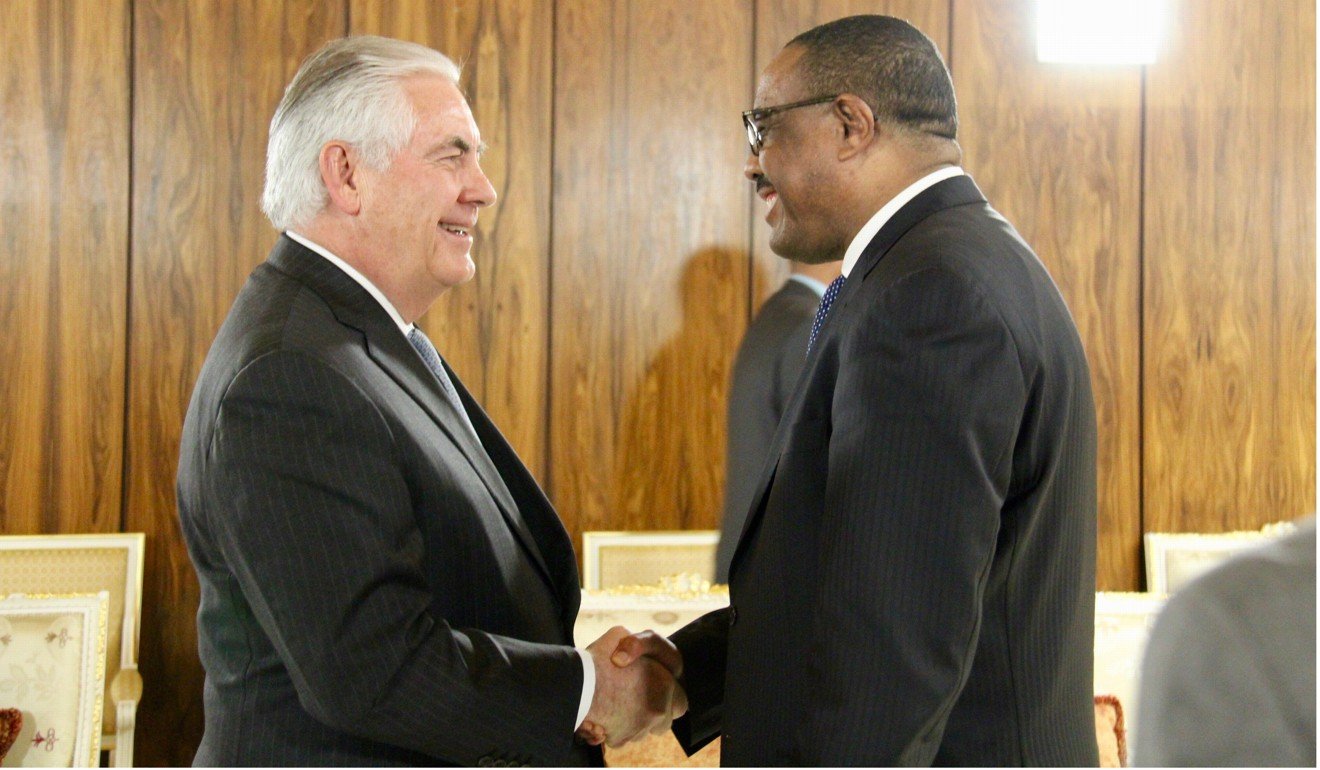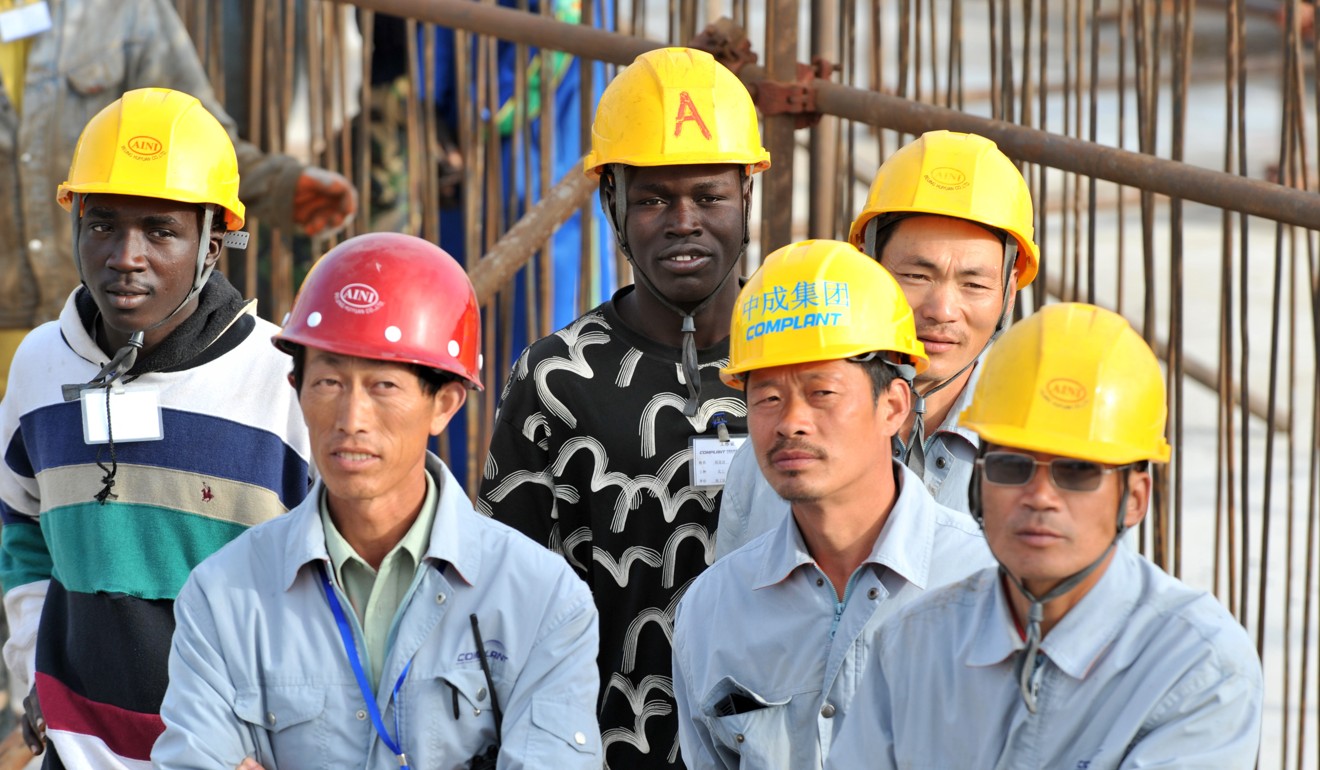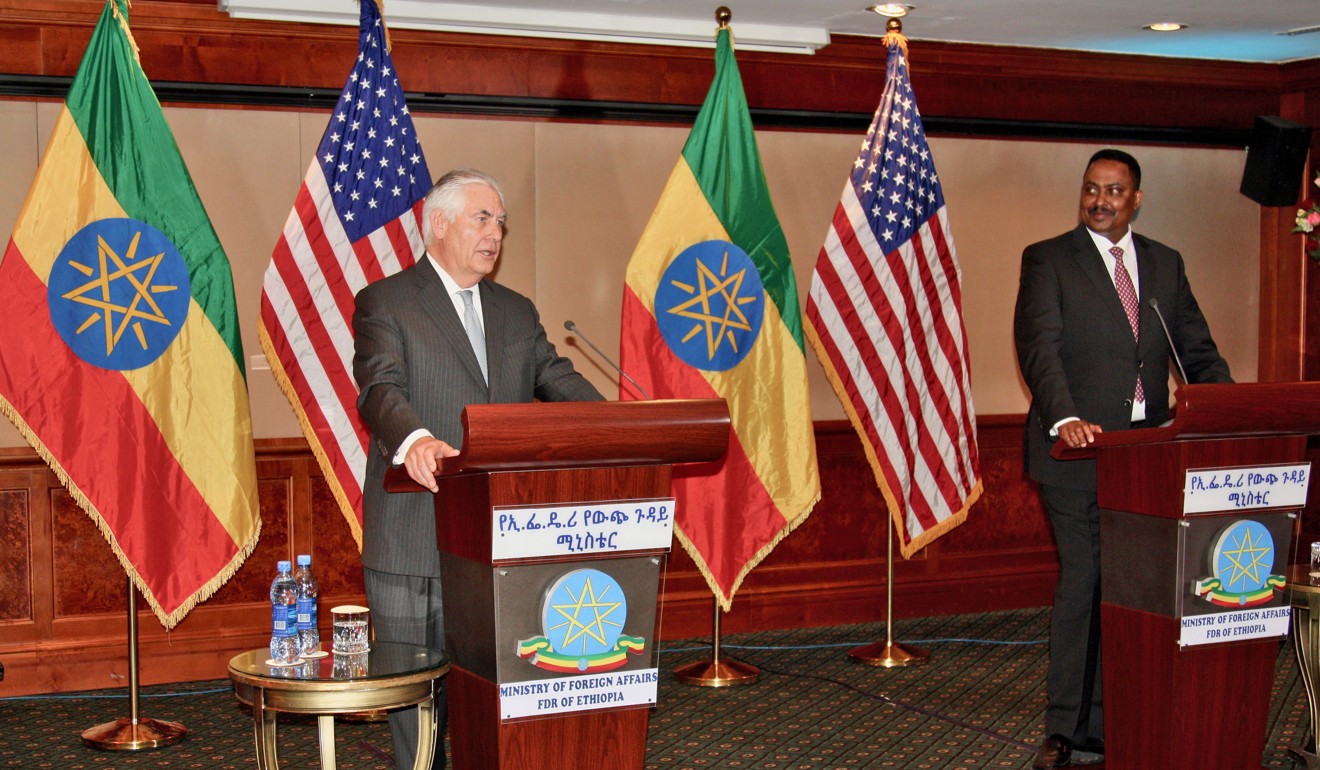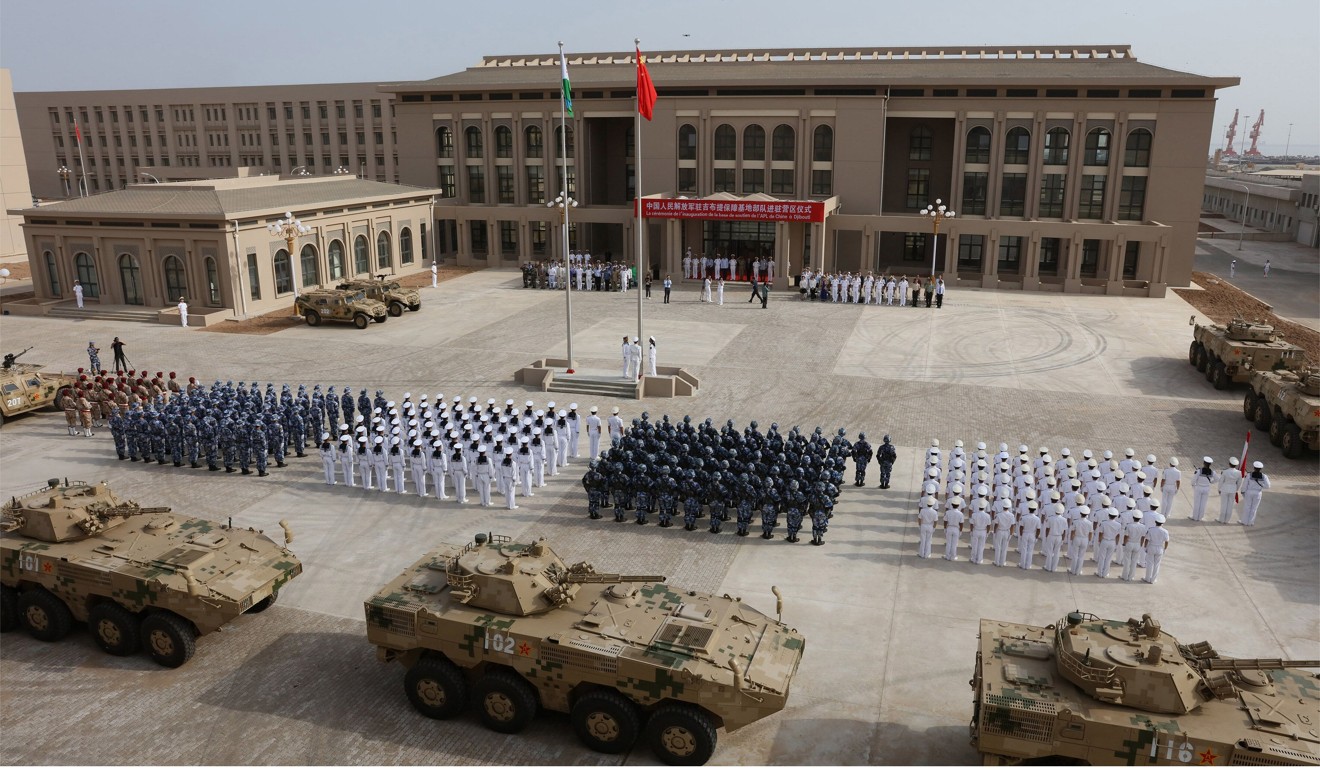
Analysis | US alarmed by China flooding Africa with much-needed money
The new electrified rail line snakes through the African desert, charting a course from a port along the Djibouti coast to Addis Ababa in Ethiopia.
The Chinese built the railway, part of the port and the new military base next door. On the other end of the line, Chinese money financed Addis Ababa’s new light rail, and a ring road system, plus the silver African Union headquarters that towers over the city.
Across the Atlantic Ocean, America has noticed.
From Djibouti to Ethiopia, Kenya to Egypt, the United States is sounding the alarm, suggesting the Chinese money flooding Africa comes with strings attached. The warnings carry distinct neocolonial undertones: with Beijing’s astonishing investments in ports, roads and railways, the US claims, come dependency, exploitation and intrusion on nations’ basic sovereignty.

“We are not in any way attempting to keep Chinese investment dollars out of Africa. They are badly needed,” US Secretary of State Rex Tillerson said this week in the Ethiopian capital. “However, we think it’s important that African countries carefully consider the terms.”
Those terms lead to deals in which Chinese workers, not Africans, get the construction jobs, Tillerson and other US officials warn. They say Chinese firms, unlike American ones, do not abide by anti-bribery laws, fuelling Africa’s pervasive problems with corruption. And if countries run into financial trouble, they often lose control over their own infrastructure by defaulting to a lender that historically has not always been forgiving.

Some African countries now owe sums double that of their annual economic output, the US has said, with most debt owed to China. In Djibouti, the debt totals roughly 84 per cent of its GDP, Foreign Minister Mahamoud Ali Youssouf acknowledged on Friday.
“We are not that worried,” Youssouf said, standing next to Tillerson as the top US diplomat visited the tiny coastal country. “No country can develop itself without having a strong infrastructure. And China is, from that perspective, a very good partner.”

There are obvious reasons the US would want to cast itself and its companies as a more favourable alternative to China, the geopolitical rival and economic competitor with rising influence also in Latin America, Europe and the Middle East.
China disputes claims that its enterprises in Africa or elsewhere are exploitive, arguing instead that its generosity illustrates its commitment to the rest of the world’s economic and social development.
“No one dominates, and all parties participate on an equal footing,” Foreign Minister Wang Yi said in his annual news conference on Thursday. “There is no secret operation, but an open and transparent operation – no ‘winner-take-all,’ but all see mutual benefits and ‘win-win’ results.”
The eye-popping investments through China’s “Belt and Road Initiative” initiative, believed to run into the trillions of dollars, form just one part of the Asian power’s bid to promote a new global system that puts Beijing at the centre. Equally alarming to the US are China’s military designs.
In Djibouti, China has built its first overseas base along the key shipping route that links Europe and Asia. Its “string of pearls” plan calls for building a network of ports stretching from China to the Persian Gulf.
Despite the US having nearly 800 bases in more than 70 countries, Washington is wary as it is just miles away from the only permanent US military base in Africa.

Though it’s China’s only African base so far, General Thomas Waldhauser, head of US Africa Command, predicted this week that “there will be more”.
“We are not naive to think that some of the activities the Chinese are doing in terms of counter-intelligence there – they are taking place,” Waldhauser told the House Armed Services Committee. “But it just means that we have to be cautious, we have to be on guard.”
Already, there are cautionary tales, critics say.
In Africa, some of the China-funded roads have started to crumble, the US has said, due to shoddy construction. And in January, the French newspaper Le Monde reported that China planted listening devices in the US$200 million headquarters it built for the African Union in 2012. China denies the claim.

